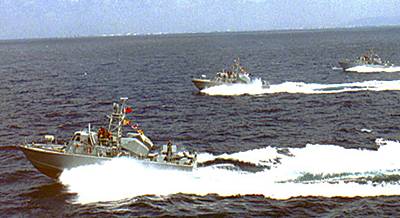WASHINGTON, March 21, 2011 — Forces loyal to Moammar Gadhafi are retreating from the opposition stronghold of Benghazi following coalition attacks to protect Libyan civilians over the weekend, Army Gen. Carter F. Ham said today.
Ham commands U.S. Africa Command and leads the coalition designed to enforce U.N. Security Council Resolution 1973, which calls for the protection of Libyan civilians from Gadhafi’s forces and authorizes a no-fly zone over Libya.
The first days of Operation Odyssey Dawn have been successful, Ham said during a news conference with Pentagon reporters from his headquarters in Stuttgart, Germany.
“I assess that our actions to date are generally achieving the intended objectives,” Ham said. “We have not observed Libyan military aircraft operating since the beginning of coalition operations.”
Coalition air attacks have succeeded in stopping regime forces from advancing on Benghazi, “and we are now seeing regime forces moving southward from Benghazi,” Ham said. “Through a variety of reports, we know that regime ground forces that were in the vicinity of Benghazi now possess little will or capability to resume offensive operations,” he added.
Coalition forces launched 12 Tomahawk cruise missiles at Libyan command and control nodes, a Scud missile site and an air defense site. “Coalition forces from France, Spain, Italy and the United Kingdom flew missions to sustain the no-fly zone over Benghazi to protect civilians from attack by regime ground forces and the conduct further reconnaissance,” the general said.
Coalition ships continue their mission to enforce the U.N. ban on weapons shipments to Libya, and the coalition flotilla off-shore was joined by the French aircraft carrier Charles DeGaulle and the Italian carrier Garibaldi.
Air operations are aimed at extending the no-fly zone southward from Benghazi and then westward to Tripoli.
Meanwhile, Ham said, he is preparing the process to transfer command of Operation Odyssey Dawn to a coalition commander.
“This is a very complex task under the best of conditions,” he said. “My goal is to not cause disruptions to the on-going operation while we effect the headquarters transition.” He said the transition will not take long to accomplish, but it must be done carefully. “It’s not so simple as just having a handshake someplace and [saying], ‘OK, you’re now in charge,’ ” Ham said. “These are very complex, technical things that have to occur, particularly in the management and command and control of the air campaign,” he said.
The coalition needs to ensure that any change would not place aircrews at risk, the general told reporters. “I do not see this being a prolonged situation,” he said, “but we need that identification of the headquarters, and then we’ll begin that process and move on.”
Ham reiterated that his mission is to protect civilians and to enforce a no-fly zone, conceding that this military mission could mean Gadhafi could remain as leader in Libya.
“It’s perhaps easier for me to address that than it is for others, because I have a very discrete military mission,” he said. “I could see accomplishing the military mission [that] has been assigned to me and the current leader would remain the current leader. Is that ideal? I don’t think anyone would say that is ideal, but I could envision that as a possible situation, at least for the current mission that I have.”
Ham said he has no mission to go after Gadhafi. “We are not seeking his whereabouts or anything like that,” he added. “We think we have been very effective in degrading his ability to control his regime forces. And we think we are seeing that play out at various parts of the country.”
The no-fly zone is making progress, but coalition aircrews still confront a dangerous environment. More than half of the missions flown in the past 24 hours were by coalition nations other than the United States. Gadhafi still has mobile surface-to-air missile systems with his deployed forces, and there are thousands of shoulder-fired missiles and thousands of anti-aircraft artillery emplacements in Libya.
The general stressed there will be no U.S. boots on the ground in Libya and that the coalition is not providing air support to the opposition.
“We do not provide close-air support for the opposition forces. We protect civilians,” he said. “Some within the opposition may be civilians. And if they are attacked by regime forces, then we would be obliged, if we possess the capability, to try to protect them from attack. But we have no mission and no intent to provide close-air support to the opposition.”
No American service members are working with opposition groups to supply information and intelligence to aircrews, the general said.
“No one who is a part of this coalition is on the ground,” Ham said. “I don’t know how to be more clear than that: No military boots on the ground.”
Source:
U.S. Department of Defense
Office of the Assistant Secretary of Defense (Public Affairs)

 von
von 